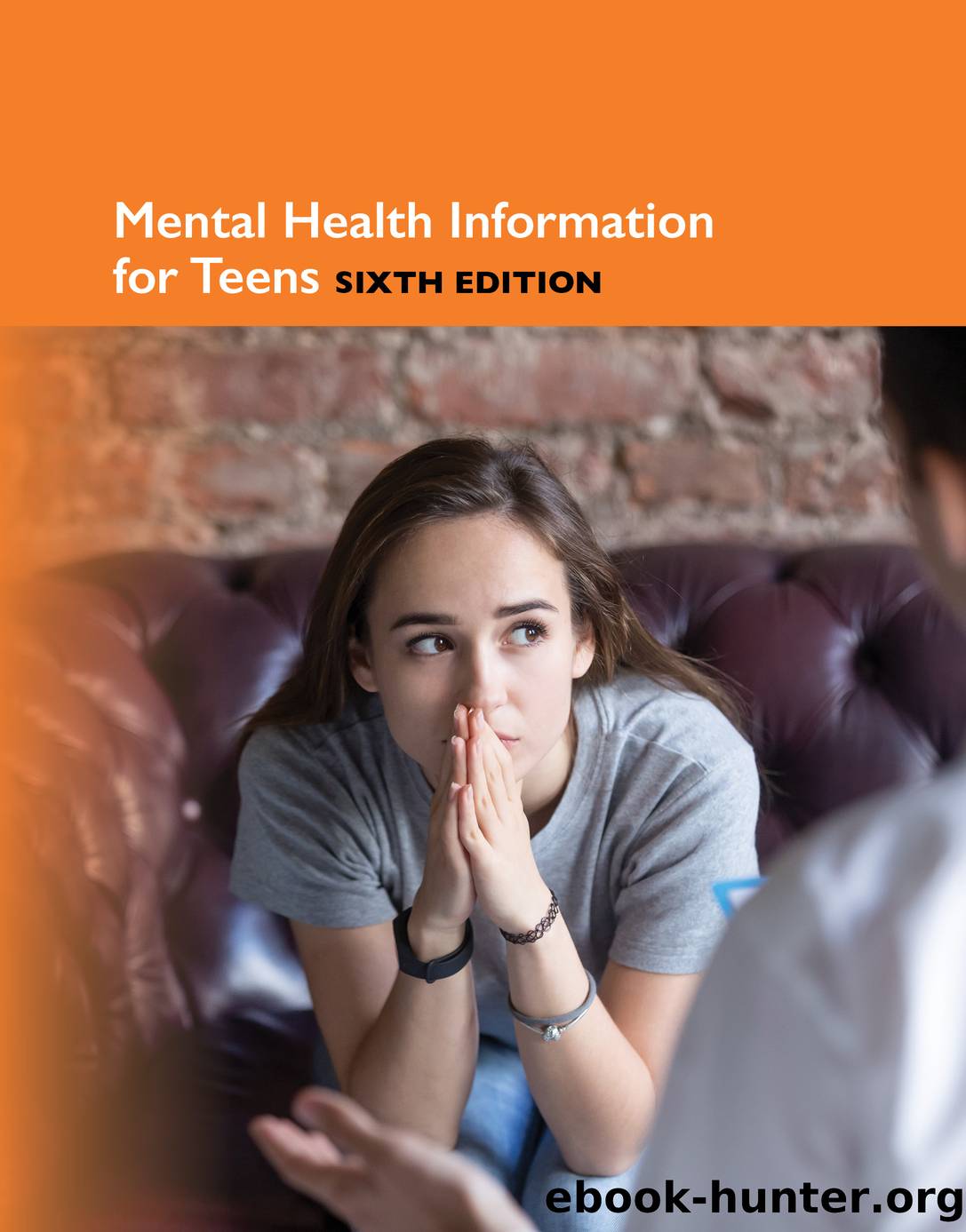Mental Health Information for Teens by Kevin Hayes

Author:Kevin Hayes
Language: eng
Format: epub
Publisher: Omnigraphics
Chapter 40
Bullying and Youth Violence
About This Chapter: This chapter includes text excerpted from âPreventing Bullying,â Centers for Disease Control and Prevention (CDC), October 21, 2020.
What Is Bullying?
Bullying is a form of youth violence and an adverse childhood experience (ACE). The Centers for Disease Control and Prevention (CDC) defines bullying as any unwanted aggressive behavior(s) by another youth or group of youths, who are not siblings or current dating partners, that involves an observed or perceived power imbalance, and is repeated multiple times or is highly likely to be repeated. Bullying may inflict harm
Bullying may seriously affect the mental health and well-being of children and youth. Parents, teachers, coaches, and other youth-serving adults are in positions where they are able to notice when there are signs of mental distress or bullying behavior.
Research suggests that children and youth who are bullied over time are more likely than those not bullied to experience depression, anxiety, and low self-esteem. They also are more likely to be lonely and want to avoid school. There are many ways that parents and youth-serving adults can help prevent or address bullying.
The same study showed that children and youth who bully others over time are at higher risk for more intense anti-social behaviors like problems at school, substance use, and aggressive behavior. Parents should pay attention to warning signs that their child may be engaging in bullying behavior, like getting into physical or verbal fights or blaming others for their problems.
Bystanders to bullying may also experience mental-health effects. The same study showed that students who witness bullying at school experienced increased anxiety and depression regardless of whether they supported the bully or the person being bullied. Bystanders may experience stress related to fears of retaliation or because they wanted to intervene, but did not.
Addressing bullying and related mental-health concerns early can help prevent harmful negative experiences and keep children and youth moving forward in a positive trajectory at school, with friends, and in their personal development.
(Source: âEffects of Bullying on Mental Health,â StopBullying.gov, U.S. Department of Health and Human Services (HHS).)
Download
This site does not store any files on its server. We only index and link to content provided by other sites. Please contact the content providers to delete copyright contents if any and email us, we'll remove relevant links or contents immediately.
Evelina by Fanny Burney(26865)
Call Me by Your Name by André Aciman(20491)
The Secret History by Donna Tartt(19047)
Primed Son (Dark Siren Book 4) by Eden Ashley(18936)
Shot Through the Heart by Niki Burnham(17458)
Who'd Have Thought by G Benson(16571)
All the Missing Girls by Megan Miranda(15945)
Eleanor and Park by Rainbow Rowell(15448)
Always and Forever, Lara Jean by Jenny Han(14899)
Ready Player One by Cline Ernest(14639)
A Web of Lies 27 by Bella Forrest(13814)
Fallen Heir by Erin Watt(13413)
The Cruel Prince (The Folk of the Air Book 1) by Holly Black(12449)
Bull's Eye Sniper Chronicles Collection (The Second Cycle of the Betrayed Series) by McCray Carolyn(12364)
Crooked Kingdom: Book 2 (Six of Crows) by Bardugo Leigh(12306)
Shadow Children #03 - Among the Betrayed by Margaret Peterson Haddix(11915)
Twisted Palace by Erin Watt(11141)
Warriors (9781101621189) by Young Tom(10836)
Simon vs. the Homo Sapiens Agenda by Becky Albertalli(10314)
